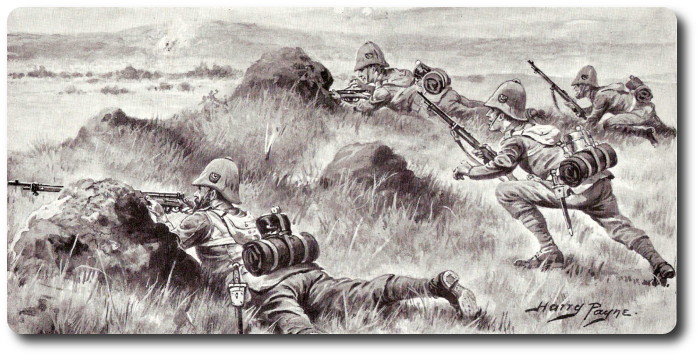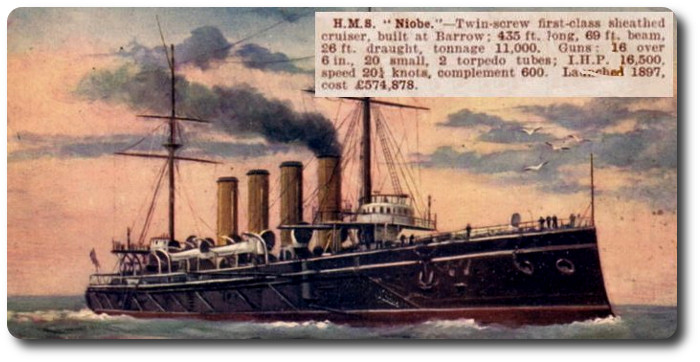Instructions for Officers on First Joining
Topic: Officers
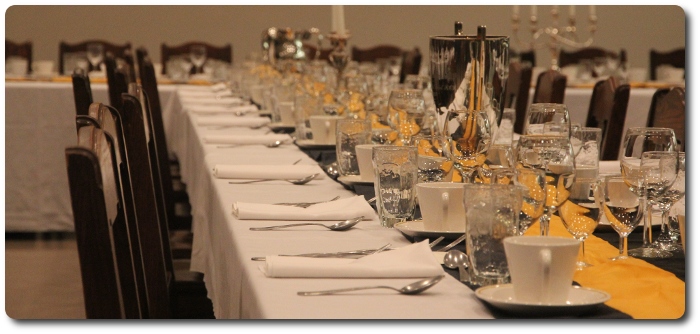
Instructions for Officers on First Joining a Regiment or Depot,—Memorandum
The Public Ledger and Newfoundland General Advertiser, 13 October 1854
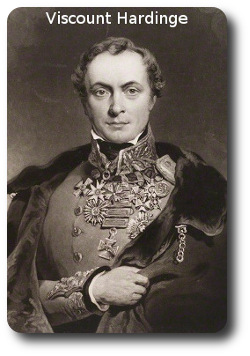 1. The General Commanding-in-Chief had, in the course of last year, been twice under the necessity of expressing to every regiment, at6 home and abroad, his apprehensions that a few inconsiderate officers might bring their regiments to disrepute unless, in their social conduct towards each other at their mess-table and in their barrack rooms, their behaviour should be regulated by a higher standard of what is due to the honourable position in which they stand as the holders of commissions in her Majesty's army.
1. The General Commanding-in-Chief had, in the course of last year, been twice under the necessity of expressing to every regiment, at6 home and abroad, his apprehensions that a few inconsiderate officers might bring their regiments to disrepute unless, in their social conduct towards each other at their mess-table and in their barrack rooms, their behaviour should be regulated by a higher standard of what is due to the honourable position in which they stand as the holders of commissions in her Majesty's army.
2. The first case which required Viscount Hardinge to assemble a court-martial on any officer was that of the 50th Regiment, on which occasion four subalterns were tried for forcibly seizing a young ensign, taking him to a pump, and there pumping upon him.
Two of these officers were sentenced to be dismisses the service, and two were reprimanded.
The memorandum containing Viscount Hardinge's comments was dates 5th of July, 1853, and was read to the officers assembled of every regiment in the service. It is given in the appendix.
3. The second instance occurred in the 62nd Regiment in October, 1854.
A captain in command of two companies had repeatedly annoyed and disturbed the subaltern of his own company, and, accompanied by other officers, had been in the habit of bursting into his room, and taking his bed to pieces, &c.
The lieutenant had the proper spirit to make his report to the regiment.
The officer commanding the regiment did his duty firmly; he supported the subaltern, and reported his case to the Horse Guards.
4. A third instance has now occurred. It is that in the 46th Regiment. The case originated in a disgraceful scene of deep gambling in a barrack room at Windsor, between Lieutenant Greer and Lieutenant Perry, terminating in a violent assault, in the course of which the most disgusting language was applies by Lieutenant Greer to Lieutenant Perry.
5. At the close of the trial of Lieutenant Greer a letter was handed to the President of the court-martial by Lieutenant Perry, charging his commanding officer, Colonel Garrett, with grave acts of injustice, and stating that he (Lieutenant Perry) had sent a letter to his commanding officer, threatening to appeal to the general officer of the district, &c. Colonel Garrett denied these acts of injustice imputed to him, and he denied that any such letter had ever been sent to him by Lieut. Perry.
6. The General Commanding-in-Chief took the same course in this case as he had done in that of the 50th and for the same reasons viz., his determination not to consent to a compromise in any of these cases, but to eradicate the unmanly system. The charges made by Lieutenant Perry against Colonel Garrett were specific. They amounted to a breach of Her Majesty's regulations, and apparently were in defiance of the admonitions and orders circulated in July and December, 1853.
The General Commanding-in-Chief resolved, therefore, that the truth or falsehood of these charges should be investigated by a court-martial on oath.
7. The result of that court-martial, as well as the two preceding trials in the 46th Regiment, is given in the appendix, in order that every young officer may have on his first joining his regiment, by means of these examples, a clear understanding of his own position.
He will carefully read the Articles of War, given in the Appendix, together with a letter of the Judge-Advocate-General of 1814, which was published to the army, with the Mutiny Act and Articles of War of that year.
If the ensign is firm, and has the proper spirit of an officer and gentleman, he can have no difficulty, without any loss of honour or of temper, in resisting coarse practical jokes.
But, if he submits to them on the plea that they are the customary probation of an officer entering the British army, he will justly submit himself to the charge of having tamely submitted to insult; and it is his duty, on every account, and especially for the purpose of insuring his military efficiency, which depends upon character, that he should not suffer any liberties to be taken calculated to expose him to the derision of his brother officers and the men under his command.
8. These coarse irregularities, termed practical jokes, and the use of disgusting language have increased, it is said, since the introduction of those Articles of War in 1854, which more strictly prohibited dueling in the army.
Public feeling had, in the preceding year, been greatly shocked by two officers, who were brothers-in-law, having fought a duel, in which one was killed.
The better and truer reason, however, for the increased strictness of the articles prohibiting duelling was, that the tone of society had improved, and that all men were united in reprobating so barbarous a mode of settling a dispute.
A few men of coarse and ungenerous tempers, since the severer Articles of War have been published, may have sought to take advantage of the apparent impunity which the prohibition afforded, and have taken greater liberties with their brother officers than they did when under the apprehension of immediate personal consequences.
Such practices cannot be permitted; they must be repressed, for they are degrading to the character of an officer. They render him unfit to command his men, for they cannot feel for him the respect which is the basis of all enduring authority. They render him unfit to associate with his brother officers, who must now hold him in contempt, or have themselves unk so low as not to shrink from contact with men of such coarse vulgarity.
It can never be endured that the manners of the officers shall fall below the standard recognized by gentlemen.
As far as duels were permitted at all, they were suffered as means supposed to be conducive to the maintaining in the barracks and mess room the language and behavior of gentlemen.
But it would be a fatal mistake to infer, that because duelling had been prohibited, any lower standard of manners will be tolerated in the British army. The language and behaviour which formerly held to justify a challenge must now, therefore, be visited by the removal of the offender from the society of which he has shown himself to be an unworthy member.
9. Every assistance and support are to be given to the young officer in his endeavours to avoid rendering himself liable to these consequences.
In May last, before the spring inspections, the general officers ands staff officers inspecting regiments were ordered to report whether any practical jokes have been carried on at the mess table or elsewhere, or any steps taken to prevent them.
The reports are satisfactory; few regiments, however, have been inspected, owing to the greater part of the regiments having previously embarked for foreign service.
10. The captain of the company to which the ensign, on joining, is appointed, will give him advice and support.
The major intrusted by the commanding officer with this branch of the interior discipline of a regiment will do the same, and be held responsible that he does it effectually; and if any case should arise requiring interference or a reprimand, the terms of the reprimand and the record of the letters must be forthcoming, to be shown to the general officer, and sent up to the Horse Guards. The necessity is apparent after the recent trials in the 46th Regiment, and all serious cases will at once be reported to the Adjutant-General, for the decision of the General Commanding-in-Chief.
11. No case of a practical joke appears to have occurred in the 46th Regiment since October, 1853, with the exception of the case of Lieutenant Dunscombe at Weedon, in 1854.
12. General Viscount Hardinge confidently asserts that the regimental system of the British army, now so long established, has proved its efficiency as bing admirably adapted for all the varied duties of war and peace.
He trusts that the irregularities and mischievous tendencies resulting from practical jokes can and will be corrected, and disappear for ever.
A firm but temperate exercise of authority on the part of commanding officers of regiments will effect the object desired; they will find, by a faithful discharge of their duty, that they will obtain the respect and support of their officers, and the esteem of their fellow subjects.
By command of General Viscount Hardinge, General Commander-in-Chief.
G.A. Wetherall, Deputy Adjutant-General (From the London Times.)

If there were any consonance between the professions and practice of the Horse Guards, Mr. Perry would at this moment have been acquitted, Mr. Greer have been summarily dismissed from the Queen's service, Lieut. Waldy by lying under an indictment for perjury, and Colonel Garrett be brought before a suitable tribunal to answer for his conduct since he has been in command of the 46th Regiment. Nothing can be more excellent than the spirit of Lord Hardinge's orders. Let young officers act as he recommends, and they will be creditable servants of the public. Let Lord Hardinge abide by them, and he will be a very good Commander-in-Chief. We subscribe most entirely to his theories, and can only wonder that the first man practically to set them at defiance has been the Commander-in-Chief himself. For the moment we will address ourselves rather to the general bearing of the case as effects the British army than to the individual instance of Mr. Perry. It is, however, right that Lord Hardinge should be told, and that his royal mistress should clearly understand, that the outrage perpetrated on this young officer in defiance of justice and common sense has had for effect upon the public mind to lower the character of every officer who holds the Queen's commission. There are not two opinions as to the scandalous method in which the second trial was conducted, nor as to the finding of the Court-martial in barefaced defiance of the evidence. As far even as the form of trial was concerned, it was obvious that even if Lord Hardinge had wished to test the validity of the charges against Colonel Garrett, a for of trial was selected which gave that person every advantage, and laid his accuser under every difficulty. It was only by an oppressive stretch of power that, under all the circumstances of the case, a second charge against Mr. Perry was fudged up at all. He had been made the subject of a scandalous outrage. The hand of every officer in his regiment was against him upon his first trial. He escaped by a miracle from their malevolence; and yet a second time he was sent to trial upon charges which he could, as the prosecution was managed, only make good by the testimony of those who regarded him with feelings of the bitterest hostility, and who were only required to 'forget' in order to secure his expulsion from the service. Still, despite of all this, and debarred as Mr. Perry was from the power of effectually cross-examining the miserable creatures who were brought in one after the other to say 'they had really forgotten,' he made out a defence which should, one would have imagined, have put it out of the power of fifteen reasonable men to assert their conviction that Mr. Perry maliciously and willfully lied when he asserted that Garrett had called him a fool, that he had threatened to complain to the General of the district, and that a man of the name of Nicholas in the regiment was a general bully. However, fifteen men were found for the work, and they did it. Lord Hardinge was also sufficiently courageous to sanction the finding, and to involve his royal mistress in the transaction, as approving of a decision which, as the Queen's name has been mixed up with it, we will not characterize by the term it deserves. Now, what is the set-off against all of this. A set of general orders, breathing a spirit of the purest morality and the most high-toned chivalry. The good folks at the Horse Guards manage their little affairs much in the style of Augustus Tomlinson, the sentimental villain of Bulwer's novel. They knock a man down with the butt end of a horse-pistol and, standing over the prostate body, declaim in swelling periods upon the advantages of humanity and justice. As we said before, we have no fault to find with the orders; the only pity is that Lord Hardinge should have set them at defiance and turned Mr. Perry out of the army for following his injunctions.

Sentence of Lieutenant Greer
This officer was tried upon a charge of having been guilty of conduct unbecoming an officer and a gentleman to the prejudice of good order and discipline in the following instances:—
1. For having, on or about the night of the 28th or morning of the 29th of June last, willfully struck and offered other personal violence to Lieutenant Edward James Perry, of the 46th Regiment.
2. For having, at the same time and place, used provoking, insulting, and disgusting language to the said Lieutenant Perry, calling him a "swindler," "blackguard," and using other language of an offensive and insulting nature.
Acquitted, but ordered to sell out.

Lieutenant Waldy was ordered to be severely reprimanded, in consequence of his conduct in connexion with the letter written by him to Lieutenant Perry and produced in court after denying its contents.

Posted by regimentalrogue
at 12:01 AM EST
Updated: Sunday, 31 January 2016 2:56 PM EST



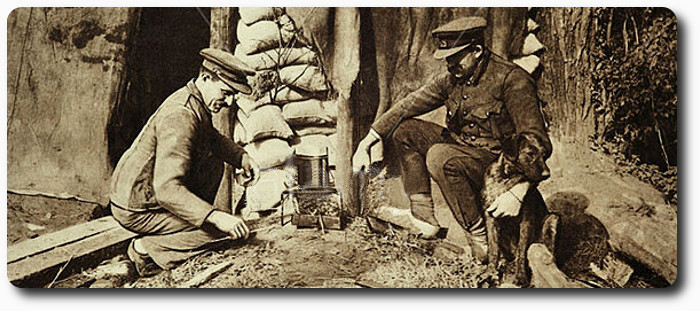
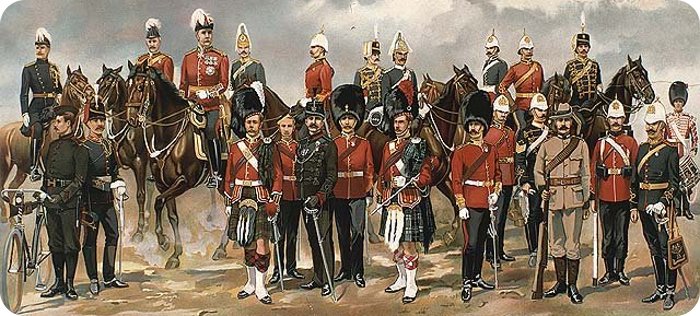
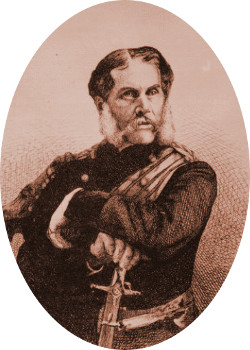 The report of the state of the Dominion Militia, presented by
The report of the state of the Dominion Militia, presented by 
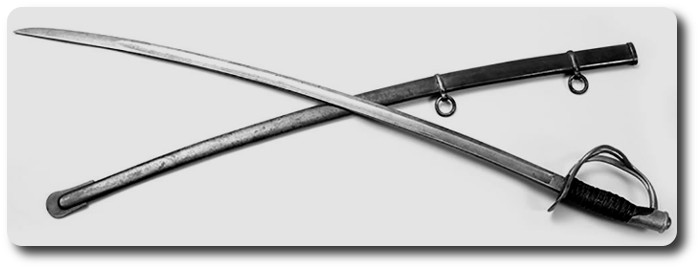
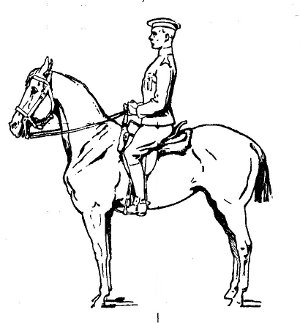 Montreal, Sept, 18—A militia order just issued by
Montreal, Sept, 18—A militia order just issued by 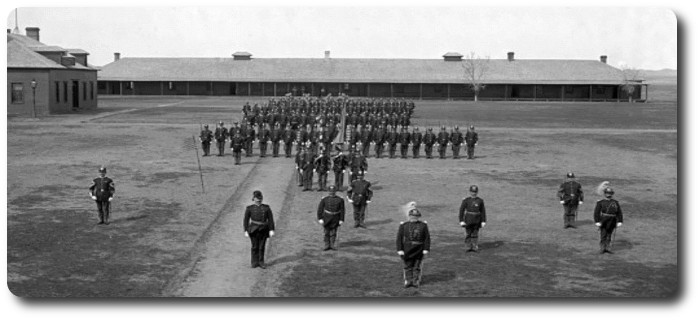

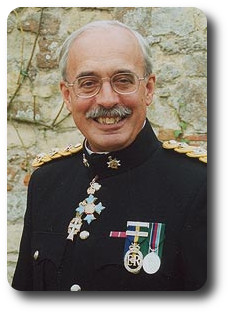
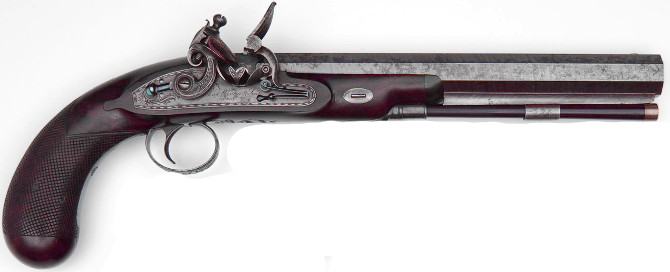

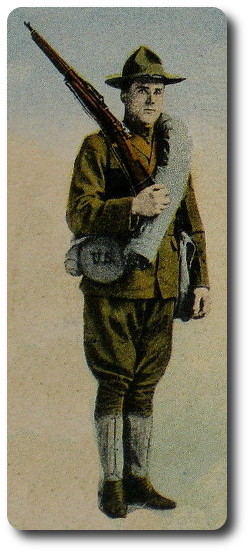 Washington.—The heaviest laden pack animal of the army is the doughboy himself. Inch for inch for size or pound for pound for weight, the buck private of infantry carries on his back into battle double the burden handled by horses or mules or motor truck.
Washington.—The heaviest laden pack animal of the army is the doughboy himself. Inch for inch for size or pound for pound for weight, the buck private of infantry carries on his back into battle double the burden handled by horses or mules or motor truck.
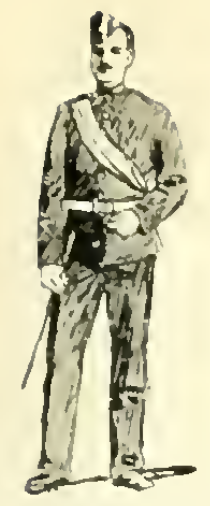 Another matter of special importance in the organization of the volunteer militia is the system by which men are enrolled. There is something radically wrong when we find from year to year that such a large proportion of the men are recruits. It is bit a very small proportion of the number of those that are enrolled that serve out their three years. A check should immediately be put on enlisting that unsettled class in the community that are here to-day and gone to-morrow. They only join with the object of getting a few days' pay and rations that are to be had at the period of the annual drills, having no love for the service at heart. They lower the tone of the rank and file, and hinder that esprit de corps which cannot be too strongly upheld. They are untidy and careless about their persons, and will do a uniform more damage in one season than a good man would do to it in three years. No decent man will wear a uniform after one of them. The expenditure of money and instruction upon them is a simple waste. Officers are naturally very eager to bring up the ranks to their proper strength at the period of annual drill, but the practice of filling them with these make-shifts should be discouraged, and none but men likely to serve out their full term should ever be enrolled. The men who do credit to the service are not those who join for considerations of pay, and en effectual means of shutting out those who would enroll from mercenary motives alone would be to make the pay progressive. Recruits should only receive 25 cents per diem, second-year men 50 cents per diem, and third-year men and over 75 cents per diem. This plan, if adopted, would guard against the enlistment of any but proper men. It would give to a three-year man the same total pay as if he had the 50 cents per diem each separate year, and after the three years it would be a reward to long service men, and an inducement to continue on in the service. A man after three years of instruction ought to be worth more than a recruit.
Another matter of special importance in the organization of the volunteer militia is the system by which men are enrolled. There is something radically wrong when we find from year to year that such a large proportion of the men are recruits. It is bit a very small proportion of the number of those that are enrolled that serve out their three years. A check should immediately be put on enlisting that unsettled class in the community that are here to-day and gone to-morrow. They only join with the object of getting a few days' pay and rations that are to be had at the period of the annual drills, having no love for the service at heart. They lower the tone of the rank and file, and hinder that esprit de corps which cannot be too strongly upheld. They are untidy and careless about their persons, and will do a uniform more damage in one season than a good man would do to it in three years. No decent man will wear a uniform after one of them. The expenditure of money and instruction upon them is a simple waste. Officers are naturally very eager to bring up the ranks to their proper strength at the period of annual drill, but the practice of filling them with these make-shifts should be discouraged, and none but men likely to serve out their full term should ever be enrolled. The men who do credit to the service are not those who join for considerations of pay, and en effectual means of shutting out those who would enroll from mercenary motives alone would be to make the pay progressive. Recruits should only receive 25 cents per diem, second-year men 50 cents per diem, and third-year men and over 75 cents per diem. This plan, if adopted, would guard against the enlistment of any but proper men. It would give to a three-year man the same total pay as if he had the 50 cents per diem each separate year, and after the three years it would be a reward to long service men, and an inducement to continue on in the service. A man after three years of instruction ought to be worth more than a recruit.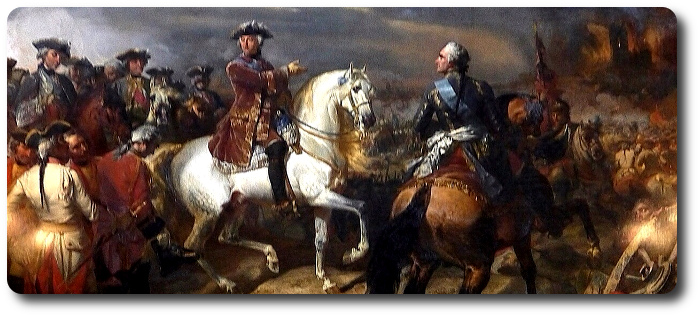
 The practice of troops messing together contributes much to good order, oeconomy, and health debauchery and gaming are thereby prevented, and the soldier is, at the same time, very well maintained. This institution, however, is not without its inconveniences; because a man harasses himself after a march in search of wood, water, &c.; is tempted to maraud; is perpetually dirty, and ill dressed; spoils his clothes by the carriage from one camp to another of all the necessary utensils for his mess; and likewise impairs his health by the extraordinary fatigues which unavoidably attend it. Yet these inconveniences are not without a remedy; for the troops being, according to my disposition, divided into centuries, a sutler, provided with four carts drawn each by two oxen, should be appointed to every one, and furnished with a pot large enough to hold a sufficient quantity of soup for the whole century, of which every man should receive his proportion in a wooden porringer, together with some boiled meat at noon, and roasted in the evening; and officers should attend, to see that they be not imposed upon, or have cause to complain. The profit allowed to be made by these sutlers, should arise from the sale of liquors, cheese, tobacco, and the skins of the cattle which they kill; and which they are also to maintain with the herbage and provisions that will be always found in the neighbourhood of the army.
The practice of troops messing together contributes much to good order, oeconomy, and health debauchery and gaming are thereby prevented, and the soldier is, at the same time, very well maintained. This institution, however, is not without its inconveniences; because a man harasses himself after a march in search of wood, water, &c.; is tempted to maraud; is perpetually dirty, and ill dressed; spoils his clothes by the carriage from one camp to another of all the necessary utensils for his mess; and likewise impairs his health by the extraordinary fatigues which unavoidably attend it. Yet these inconveniences are not without a remedy; for the troops being, according to my disposition, divided into centuries, a sutler, provided with four carts drawn each by two oxen, should be appointed to every one, and furnished with a pot large enough to hold a sufficient quantity of soup for the whole century, of which every man should receive his proportion in a wooden porringer, together with some boiled meat at noon, and roasted in the evening; and officers should attend, to see that they be not imposed upon, or have cause to complain. The profit allowed to be made by these sutlers, should arise from the sale of liquors, cheese, tobacco, and the skins of the cattle which they kill; and which they are also to maintain with the herbage and provisions that will be always found in the neighbourhood of the army. 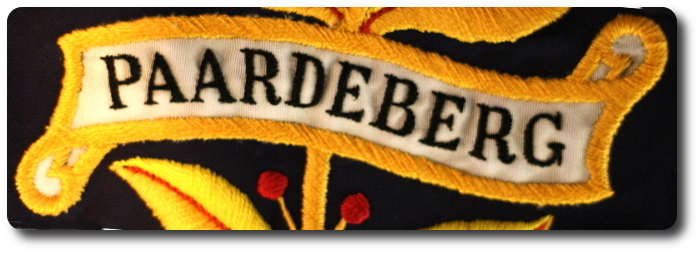
 Boer Commando Reduced to Desperate Straits Before They Would Give In
Boer Commando Reduced to Desperate Straits Before They Would Give In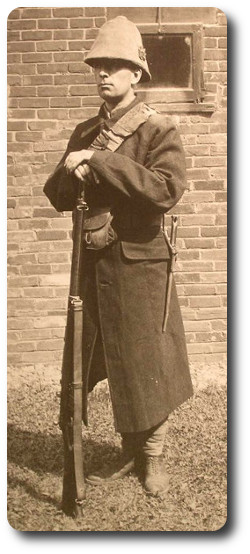 "Brigadier General MacDonald sent from his bed a note to Lord Roberts, reminding him that Tuesday was the anniversary of that disaster, which, we all remembered, he has by example, order and threat himself, done his best to avert, even while the panic had been at its heights; Sir Henry Colville submitted a suggested attack backed by the same unanswerable plea.
"Brigadier General MacDonald sent from his bed a note to Lord Roberts, reminding him that Tuesday was the anniversary of that disaster, which, we all remembered, he has by example, order and threat himself, done his best to avert, even while the panic had been at its heights; Sir Henry Colville submitted a suggested attack backed by the same unanswerable plea.
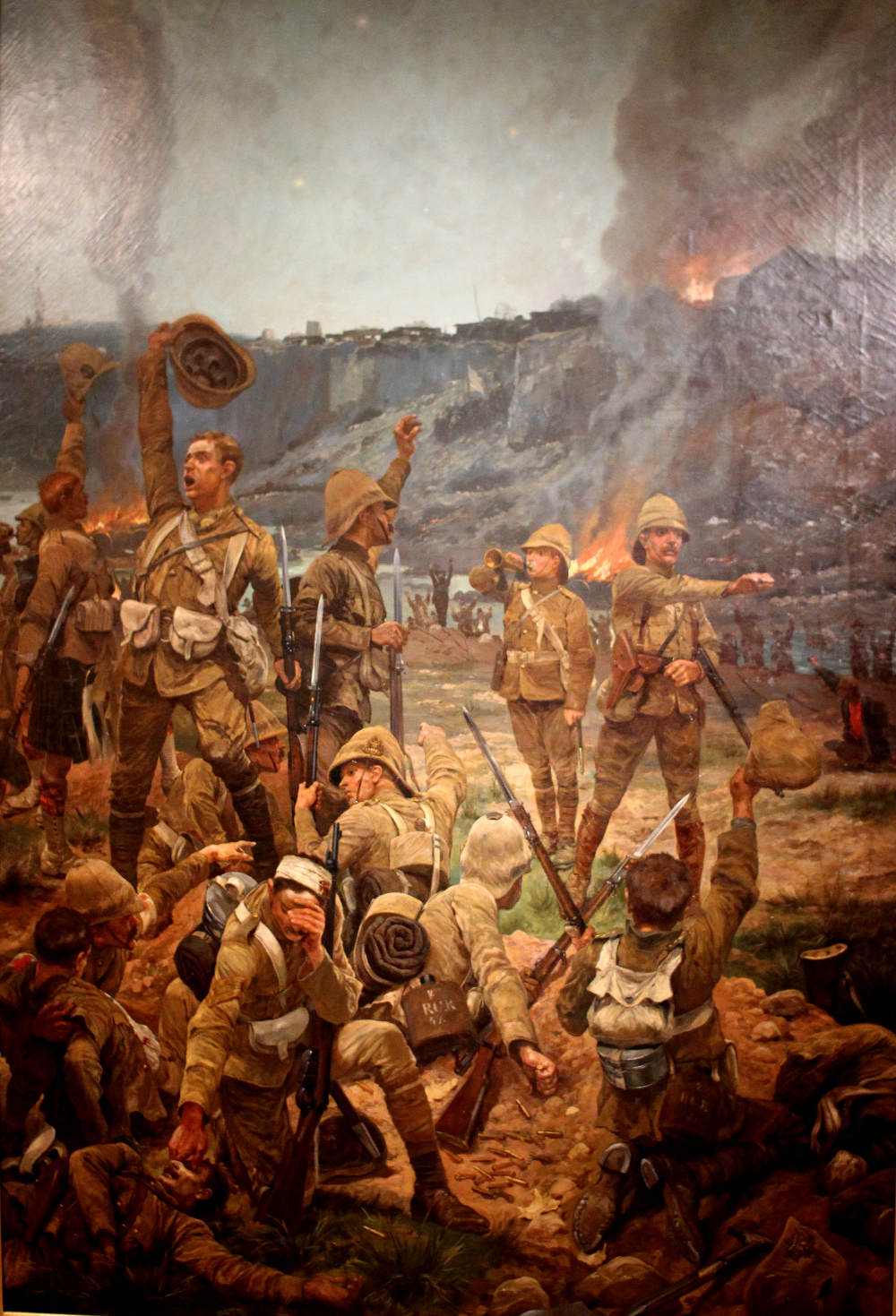

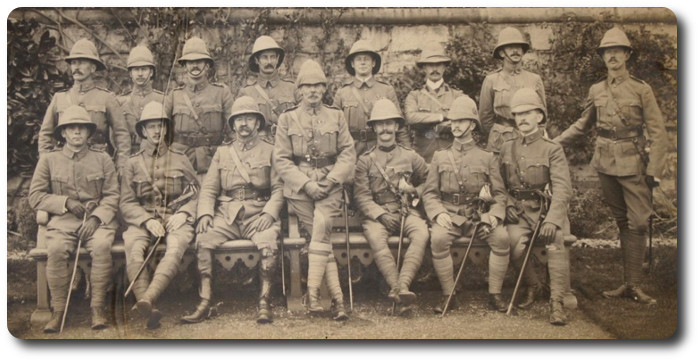

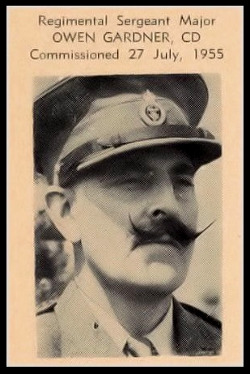 Calgary, Alt.—(CP)—The regimental sergeant major of the Princess Patricia's Canadian Light Infantry now is Capt. Owen Gardner. He was commissioned and named captain without going through the intermediate ranks of second and first lieutenant.
Calgary, Alt.—(CP)—The regimental sergeant major of the Princess Patricia's Canadian Light Infantry now is Capt. Owen Gardner. He was commissioned and named captain without going through the intermediate ranks of second and first lieutenant.
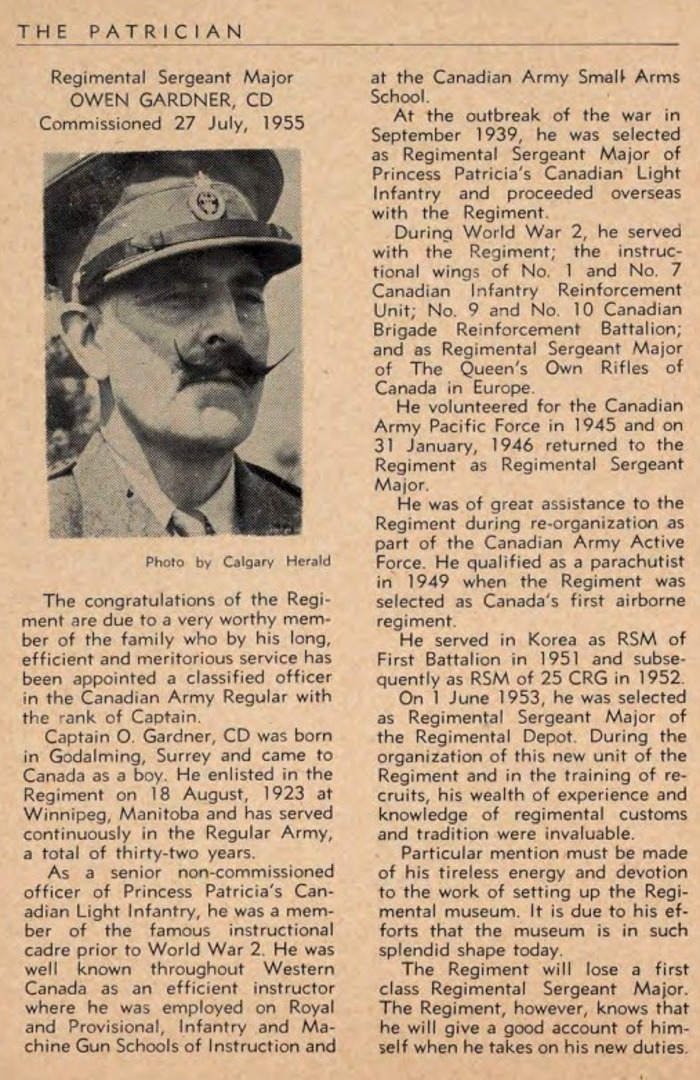

 1. The
1. The 

